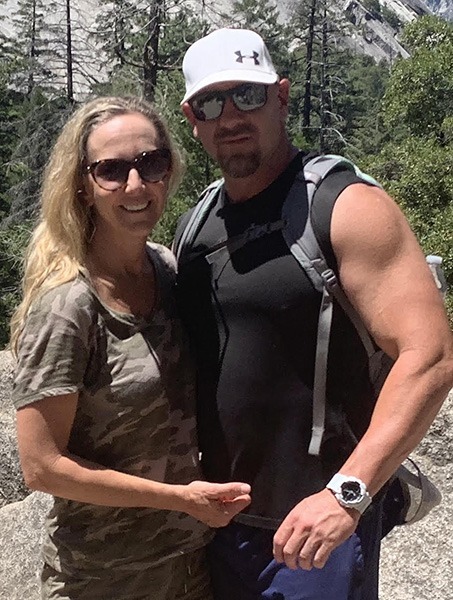Have you ever felt your heart racing while you were standing still? Have your palms, or even the rest of you, broken out in a sweat, but you weren’t hot? Or maybe you got the shakes for no reason? That, my friend, is anxiety. And when anxiety comes for a visit, it can kick your butt.
Most of the time, it will get triggered by something specific to you, like giving a presentation in front of a lot of people, having a hard discussion with a loved one, or doing something new for the first time. Identifying your personal triggers is the first step in dealing with anxiety.
But sometimes that isn’t enough. If you constantly feel anxious- whether it’s just a free-floating feeling of anxiety or acute anxiety- you need some tools to calm it down and keep it in check. You might even need a little more support like Hormone Optimization.
Three Simple Tools for Your Anxiety Toolbox
Breathe: it sounds simple. It is. And it is one of the most effective ways to calm your nervous system down. We won’t go into the details of how it all works here. Just trust us. Taking long deep breaths can settle down your nervous system and keep you out of an anxiety attack. You can also practice breathing in for 4 counts and breathing out for 4 counts for 5 minutes. This will slow your heart rate, which should help calm you down.
Do 15 Minutes of Something Else
Sometimes, the best way to stop anxiety in its tracks is to walk away from the situation, even if the situation is just in your head. Take time to focus on a physical task- do some yoga, take a walk, participate in a fun activity with your kid, wash the dishes, or take your dog to the park. Watch a funny clip, listen to or dance to some good music. Even just a quick walk around the office can help if you can’t leave work.
Question and Write Out Your Thoughts
Negative thoughts are like dandelions in your yard. They take root, and you can’t get rid of them. Before you know it, the situation is distorted all out of whack, and you can’t see the grass through the dandelions. All you want to do is set fire to the yard.
That’s why it’s important to become aware of your triggers and fears. Explore whether or not they are true, and take back control of your thinking. Writing down whatever is spinning in your mind can get it out of your head and make it less powerful.
If you have anxiety that is focused on a situation, like being worried about an upcoming event, the symptoms will probably be short-lived and subside after the event takes place. If you have a generalized anxiety disorder, then you’re going to need some long-term strategies. These may include working with a therapist to identify triggers, practicing cognitive behavioral therapy, meditating daily, taking supplements or prescription medications, adjusting your lifestyle, or undergoing hormone optimization therapy.
Some Anxiety is Manageable. A Lot Is Downright Harmful
Everyone experiences increased anxiety at some point in their lives. Like we said earlier, it’s a totally natural stress response. It’s your brain’s response to a perceived danger. Here’s the problem- the danger could be something real, or it could be something that isn’t. If you have a negative outlook or have had a lot of trauma in your life, then you may be highly sensitive to the situations or people around you, and your nervous system may automatically go into an anxiety response even if you aren’t really being threatened by anything.
Some anxiety can amplify and turn into anxiety attacks. An anxiety attack starts our feeling manageable but builds over a few hours into something bigger. During an anxiety attack, you may feel
- Panic or dread
- Restless
- Nervous
- Your heart beating rapidly
- Sweaty
- Shaky
- Tired or weak
- Nauseous
- Unfocused
- You may even hyperventilate or get chills
Anxiety attacks are different from panic attacks, which pop up out of the blue. During a panic attack, you may also feel like you are dying or you can’t breathe. Interestingly enough, you can experience an anxiety and panic attack simultaneously.
If It’s Bad, There Are Solutions
Anxiety is a part of life, but it should never take over. Even extreme anxiety disorders can be treated, so you never have to live with overwhelming symptoms.
How you treat the anxiety really depends on where it comes from. A licensed therapist can help you work through anxiety caused by past trauma, while a doctor can help you with medications if your brain chemistry predisposes you to chronic anxiety. If it is hormone-driven, then we’ve got solutions for you too.
Mental Health and Hormone Imbalances
There are a few different hormonal imbalances that can cause anxiety in men and women. They are usually associated with a natural drop in hormone levels due to age or dysfunction in a gland that produces hormones.
In women, anxiety is usually associated with estrogen dominance that comes with perimenopause or PMS. This causes a surge in hormones that produces an emotional roller coaster. When that happens, additional progesterone is required to balance out the estrogen to relieve the symptoms.
In men, testosterone can be the problem. Hypogonadal men tend to experience more depressive and anxiety disorders as compared to men with normal testosterone levels. Optimizing testosterone levels can boost moods, particularly in men with lower than normal levels of testosterone. Clinical studies have also shown that testosterone therapy in women has a similar positive response on mood as it does on men.
The thyroid hormone is responsible for producing neurotransmitters that affect your mood. When the thyroid malfunctions, the thyroid hormone gets unbalanced and can cause panic attacks and anxiety. Women are 5-10 times more likely to suffer from anxiety based on a thyroid hormone imbalance. Rebalancing this hormone with hormone optimization therapy can be a lifesaver for anxiety or depression.
Anxiety and Hormone Optimization: We Can Help!
If you want to know more about how you can manage anxiety by using hormone optimization, schedule a free 15-Minute phone consultation with Elite Health. We specialize in hormones and will work with you to create a custom treatment plan that will help you reduce anxiety and get your hormones back in balance.
Resources:

